Practice patterns of Ontario physicians working in 'boutique' medical clinics [Economic or policy analysis]
Annals of Family Medicine
NOVEMBER 20, 2024
Context: In Ontario, multiple organizations operate under a ‘boutique’ medicine model where patients pay a block or annual fee to access primary care services. Provincial administrative claims data was obtained from the Ontario Health Insurance Plan (OHIP).

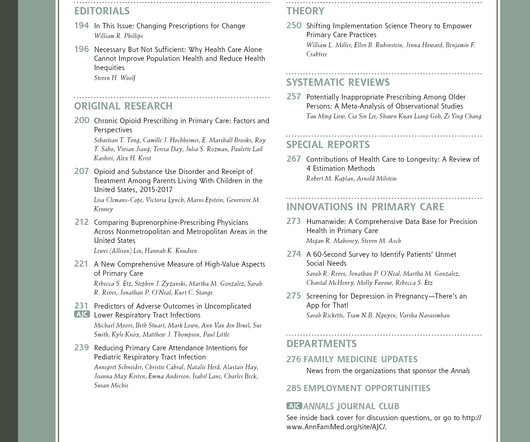
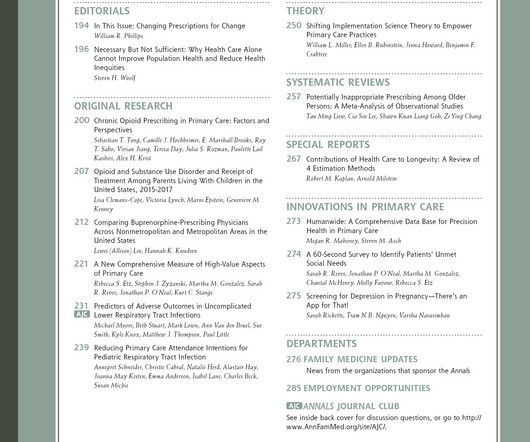

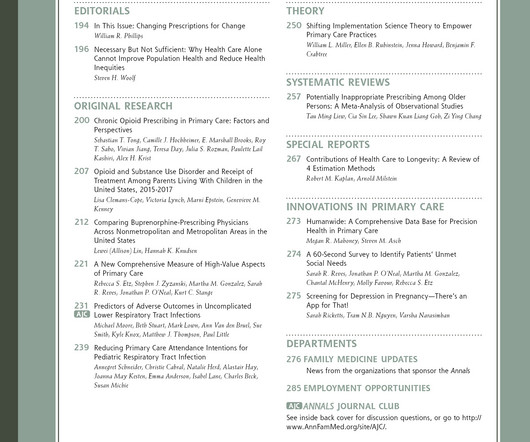
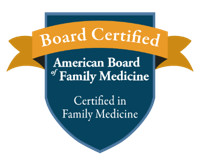



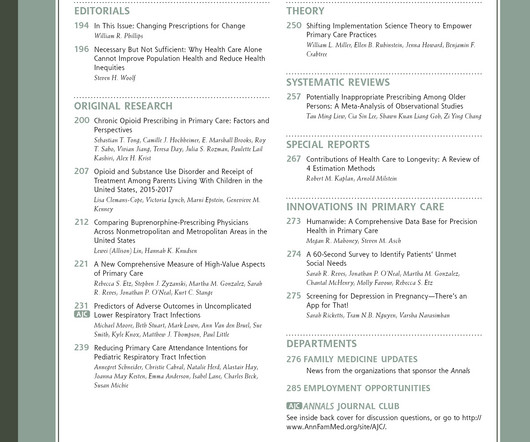














Let's personalize your content